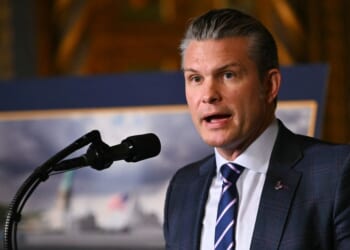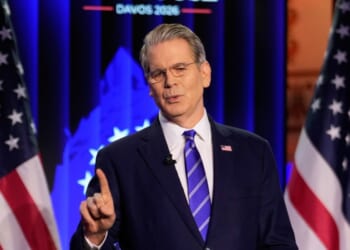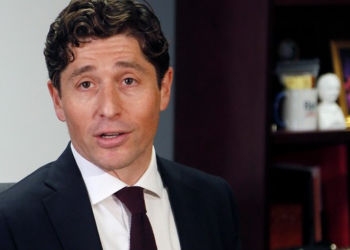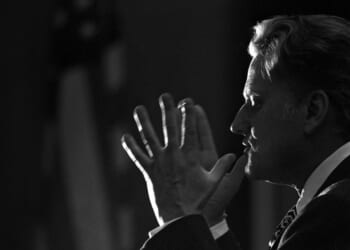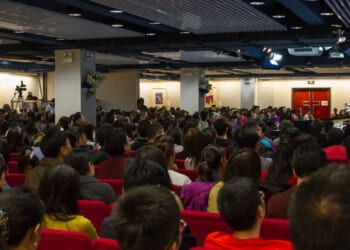The health of a nation is often marked by its youth, a fact easily forgotten when our highest offices remain dominated by the oldest generation. Yet it was not so long ago that America’s young carried us through World War II and Vietnam, or that the people elected John F. Kennedy at just forty-three years of age.
And before that, James Madison and Alexander Hamilton, barely older than college students, were already stepping onto the stage to help forge the new country’s political foundations. Our history is full of many such examples of young men and women enacting revolutionary change, but today, that vigor is slipping.
Surveys of Generation Z have revealed 58 percent of young adults have felt little to no purpose or meaning in their lives in the last month, and nearly half feel what they do each day is not interesting or important.
This trend seems to hit young men the hardest; they are less likely to finish school and far more likely to overdose, end up incarcerated, or take their own lives. And when young men lose their sense of direction, the consequences leave their mark on every part of American life.
What’s caused this shift in our young men?
Throughout most of history, young men were expected to shoulder momentous burdens; merely providing steady food and water was a hardy task. Undeveloped civilization presented a man with communities to build, frontiers to explore, technologies to discover, and wars to win.
They weren’t chasing these adventures by choice; it was required for the safety and prosperity of themselves and their families. And in today’s world, these requirements are harder to see.
But they’re still there – now only clouded by the comforts of the developed world. Consider a young man in a middle-class family: he spends his adolescence in public school and moves on to four years of college because it’s what people said to do.
Educators and family told him he’d find his purpose, but it’s still missing after studying a degree he’s not passionate in. He’s now a 23-year-old man with a passable job that pays the bills, and he doesn’t know what else he would do.
On top of necessities, his paycheck funds all the streaming subscriptions, activities with his friends, and occasional vacations he wants. The developed world afforded him a life of minimum hardship, with pleasure and comfort on demand.
And yet he feels unfulfilled. How can this be?
The experiences of the man in this example are shared by countless others, and the answer lies in what makes men fulfilled in the first place. Our 23-year-old has spent his entire life rarely, if ever, striving into unfamiliar and uncharted territory.
Men draw fulfillment from hardship and purpose: exploring, building, sacrificing, and serving. But we’ve instead been conditioned to seek comfort and convenience in pursuit of a good life, a path as destructive to a nation as it is to an individual.
This ideology ignores man’s psychological and spiritual need for duty, and confuses fleeting pleasure with true joy. In the words of the ancient philosopher Seneca, “No man is more unhappy than he who never faces adversity. For he is not permitted to prove himself.”
The luxuries of our world aren’t going away, and we shouldn’t want them to. But we also must understand that generations of men with purpose and character aren’t built by avoiding what’s uncomfortable.
So what’s the solution?
Just like the heroes of childhood stories, the young men of today need a quest — a challenge and adventure to embark upon that exceeds their familiar consolations and feeds their primeval need for responsibility.
A mission trip, volunteering with a disaster relief organization, or even wildland firefighting out West are options. It could be a contract in the military, a stint with the Peace Corps, or a couple years serving as law enforcement or a first responder.
None of these need be entire careers, but a life that begins with a stint of duty and adventure finds new direction — one that knows the fulfillment of selflessness and sees where the world still needs repair.
To quote President Theodore Roosevelt’s famous “Strenuous Life” speech, “We of this generation do not have to face a task such as that our fathers faced, but we have our tasks, and woe to us if we fail to perform them!”
When young men aren’t encouraged to conquer these obligations, they themselves suffer as the nation does. The developed world funnels them into destructive paths chasing pleasure, not passion, and comfort, not responsibility.
But their hereditary need for strife and duty didn’t disappear, and neither did the world’s struggles. And it is only through these struggles that character and vigor can fuse into America’s young men once again.
The views expressed in this opinion article are those of their author and are not necessarily either shared or endorsed by the owners of this website. If you are interested in contributing an Op-Ed to The Western Journal, you can learn about our submission guidelines and process here.
Advertise with The Western Journal and reach millions of highly engaged readers, while supporting our work. Advertise Today.




